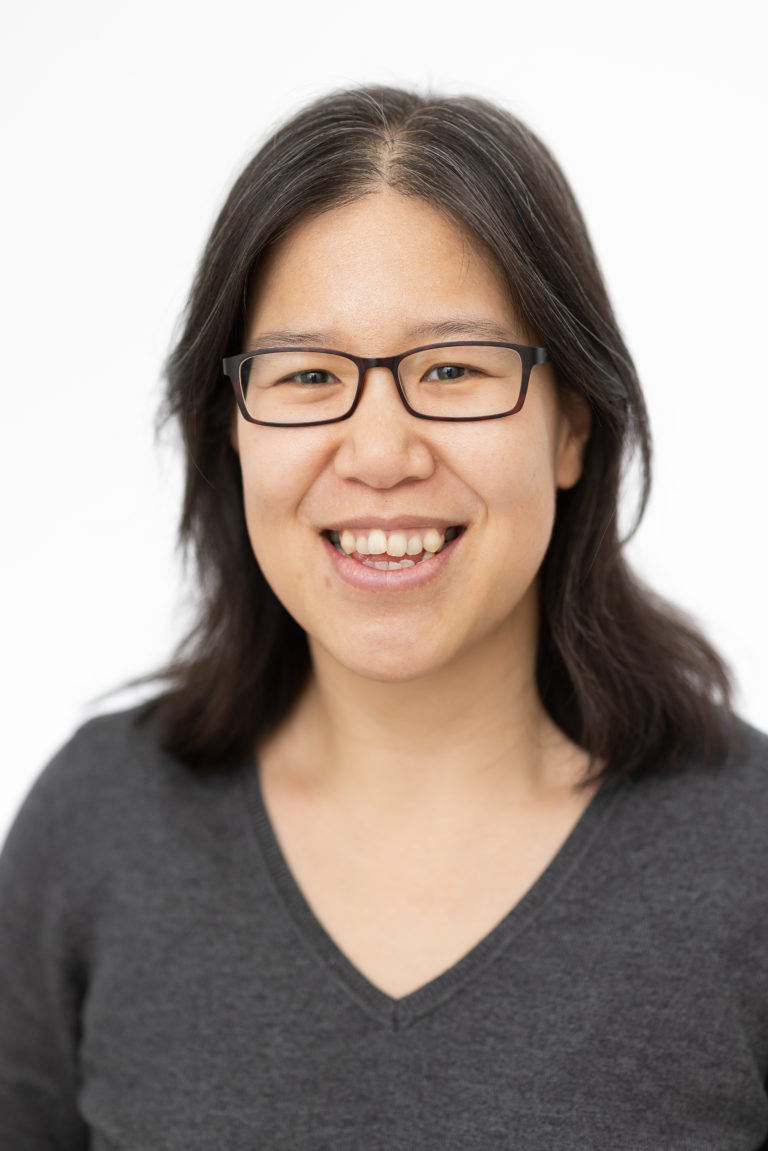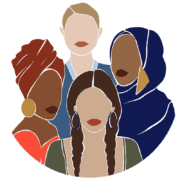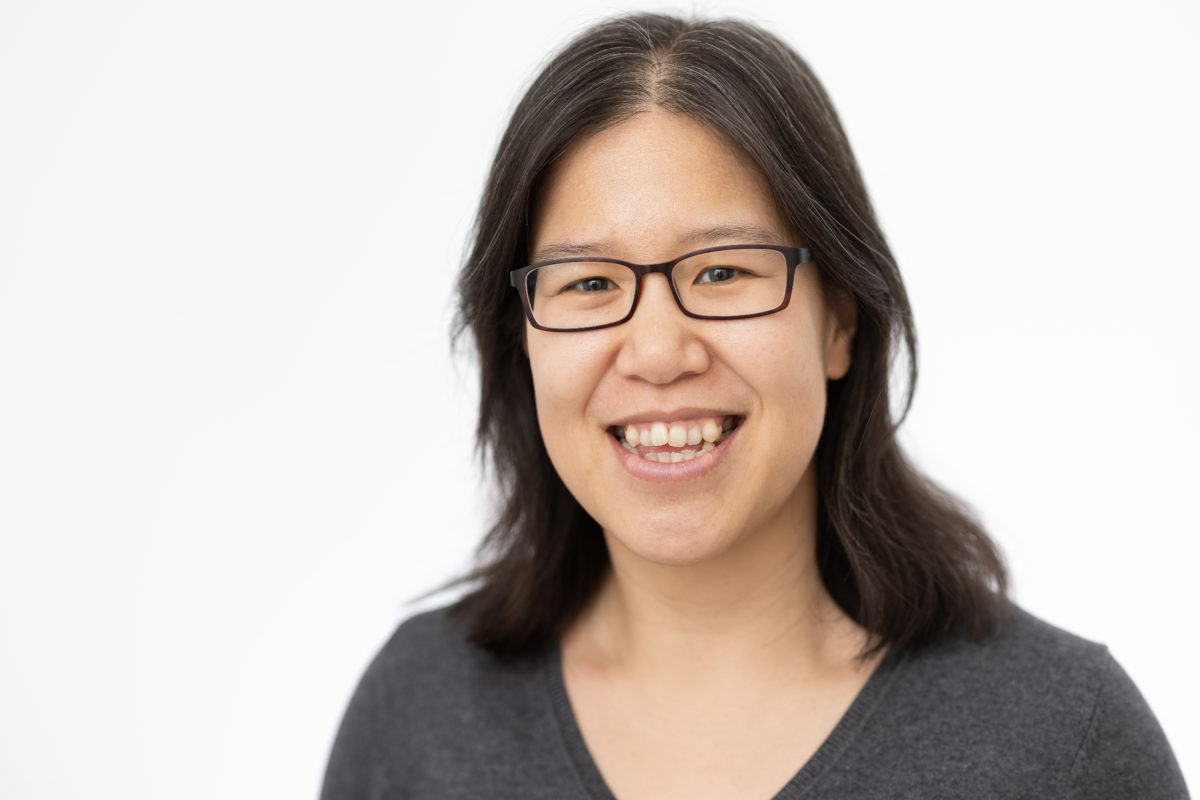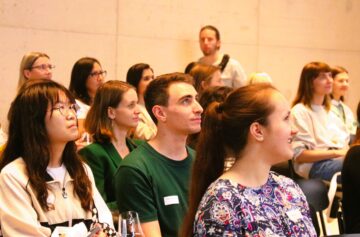Each month we have the honor of interviewing Women Who Inspire Us. This month we talked to Sabine Do-Thuong, Head of Development at Verity. In this interview, we’ve talked about how Sabine overcame different obstacles during her career, how she’s found her passion to work with people, and how she’s empowering her team to get out of their comfort zone.
Tell us a bit about yourself, your background, and your current position.
I’m Sabine and I was born originally in Germany but moved to Switzerland with my family at the age of 9. I went through the whole school system in Switzerland. I then studied Computer Science at ETH, which was quite an intense time. Out of the 220 students, we were only 20 women.
In the beginning, I felt like I was in the wrong place: I had no clue about programming at all, while my male colleagues were bragging about how they’ve already implemented their own operating system or a game. It was a tough time and occasionally I had doubts that I would make it. I had to work extra hard as everything was new to me.
Thanks to all the effort I put in, I passed all my exams quite well. I graduated with about 40 people, with only 5 of them being women.
I then tried to find my first job, which was very very hard. It was right after the dot-com bubble burst, so the companies were quite conservative and only wanted people with experience. I eventually found a job as a C++ software engineer in a bigger corporate. I had a great supervisor back then who encouraged me to speak up and helped me grow.
After 2.5 years I switched jobs and went to an SME where I stayed for more than 10 years. During this time, I specialized in software quality assurance engineering, learned everything about project management, and went abroad twice. I was sent to Singapore to build up Quality Assurance knowledge there and when I came back, the company told me that they wanted to set up a nearshore location for Singapore. I packed my suitcases and flew down to Ho Chi Minh City.
We really started from scratch – finding the right office location, getting furniture for the office, patching network cables of servers myself, hiring employees, etc. It was a very interesting time, but also very intense. It was the first time I moved from a technical individual contributor role to a more managerial/leadership role.
During that time I realized not only that I enjoyed interacting with people, but that I was also fairly good at it. And that was the turning point in my career.
Employers seemed to be only interested in hiring me if I fulfilled 100% of their job description.
Unfortunately, when I came back, my company didn’t realize that I had developed in terms of personal growth and they still saw me just as a software engineer. I started looking for another job with more leadership responsibilities, but it was pretty hard as I didn’t have a manager job title and my CV was mostly about my Software Engineering background. Thus, I received one rejection after the other.
According to the companies, there was always someone else who was a better fit. At that time, TWINT came along. It started with them being my customer. Then I was asked to help organizing an existing software team.
Eventually, TWINT hired me to build a new engineering team, starting from scratch until roughly 50 software engineers. It was a steep learning curve, including all the pains and gains when growing fast. During my time at TWINT, I started to do an EMBA while still working full-time.
One day I woke up and realized I had no life anymore. Thus, I decided to take a break and quit my job after finishing my studies. I wanted to travel around the world and in hindsight, it was perfect timing just before COVID hit the world. I was very lucky to be able to travel to more than 30 countries.
After coming back, I experienced the same sensation in the job market: rejection after rejection. Employers seemed to be only interested in hiring me if I fulfilled 100% of their job description. However, that was not interesting to me as I wanted a job where I could continue to learn and grow. I didn’t do an EMBA to do the same job as I’ve done before.
Eventually, I found the position where I am at now. I’m the Head of Development at Verity, a pioneer in creating autonomous indoor drone systems. Here, I’m responsible for a team of currently roughly 50 engineers (and still growing) – all kinds of engineering disciplines which are required to build flying objects: mechanical engineers, electrical engineers, systems and control engineers, and software engineers.

Eventually, I found the position where I am at now. I’m the Head of Development at Verity, a pioneer in creating autonomous indoor drone systems.
What made you study computer science at ETH in the first place, despite not having any knowledge in programming before?
This is interesting because I didn’t remember anymore and my Mom recently told me that already as a kid I was interested in computers. We had a Commodore C64, and I was playing with it. This is how my affinity for computers started. In high school, I really loved Math and I always thought that I would study Math. But at one point, we got a substitute teacher from ETH. The way he taught us Math got so complicated, it wasn’t fun at all and so I didn’t want to study Math anymore. I thought the next best thing to Math was Computer Science, and that’s how I ended up studying Computer Science
How was it perceived in your environment? Were there any people telling you that you shouldn’t be studying computer science?
Yes, my father didn’t want me to study Computer Science. He wanted me to study Pharmacy because that’s more for women. But nevertheless, I was more interested in Computer Science and my mom was very supportive. The only condition she had was that I had to finish whatever I started.
You mentioned a few times that it was hard for you to find a job because you weren’t judged by your potential but rather at what you’ve done already. What is something companies can do to avoid that?
I think a lot depends on your supervisor. If you have a close relationship with this person, this person can influence a lot. It’s on him or her to see your potential by encouraging and challenging you. And that’s what I’m trying to do now in my leadership role as well. I have weekly 1:1s to give regular feedback, trying to understand what my direct reports struggle with, where I can encourage or even push them a little bit and make sure they can grow and what they are doing is being seen.
When I was younger, I was quite naive and thought that simply doing a good job was sufficient. I figured people would see it and give me the promotion/appreciation I thought I deserved. But this isn’t the case at all. The reality is that people are busy, they might not see you or what you’ve accomplished, or simply ignore it. Someone once told me “Do good and talk about it”. It is not about bragging, but it’s about stating the facts.

Do good and talk about it.
If you’re in a recruiting process where you don’t have someone who can vouch for you yet, the hardest thing is to get invited to a job interview. Once you have a job interview, you have a foot in the door and you can convince with your personality. If you’re applying through the standard process, your CV easily gets filtered out if you don’t have what they want to be written on your CV.
My advice is to get out and grow a network. Give whoever you meet the chance to getting to know you and leave a good impression. Usually, it’s not the person you’re directly in contact with but a third person who will approach you at some point later. That’s why it’s so important to leave a good impression so that the person you’re in contact with will recommend you to other people.
What do you think women can do to be seen & perceived for their potential?
I have always been an introvert. Thus, for many years I didn’t like to talk about myself, actively approach other people, or attend networking events. I thought just doing a good job was enough. But then I realized that having a network is super important when it comes to developing your career.
Considering that there is a substantial hidden job market where jobs are never published, it is important to get out and talk to people. Sometimes it’s just one sentence you mention which sticks in someone else’s head that could then become the next opportunity.
Did you ever have a mentor?
I never asked for one or declared anyone to be my mentor. But I’d say my former supervisor at TWINT was the closest thing to being like a mentor – despite him being my supervisor. He gave me a lot of freedom, with the right amount of guidance so that I could do my job, try out new things, and most importantly learn and grow. Our relationship evolved into a two-way street in the sense that he as a mentor also learned some things from me. Still today, we occasionally call each other and ask for the other person’s point of view.
Mentorship is like friendship. It is a trust relationship that needs to evolve over time.
Mentorship is like friendship. You cannot just walk up to a person and ask him or her to be your best friend (or mentor). It is a trust relationship that needs to evolve over time. Over time, it feels so natural that you just pick up your phone and call that somebody and ask him or her your question. That is what mentorship is about.
At Girls in Tech Switzerland, we’re all about diversity and inclusion in tech. What do you think about diversity, what do you personally do to foster diversity?
Diversity is important. There are many dimensions like ethnicity, race, educational background, geographic location, etc. but since we’re referring to the gender topic: It’s scientifically proven that men and women do not think alike. If we develop software, we don’t want to miss one half of the population, but we want to design something for everyone. There is an example where Amazon’s AI recruiting tool taught itself to prefer male candidates over female candidates.
What I do personally – because I see that a lot of women (including myself when I was younger) tend to undersell themselves – I take an extra 2 seconds when reading a CV of female applicants, or when I talk to them I try to encourage them and give them hints to improve.
Sometimes, when I find an interesting profile which maybe doesn’t fit our job description, I call the candidate for a quick chat to get an impression of that person to see if the candidate could be a fit for another position (I do this with both genders though).
What can companies do to foster diversity & inclusion?
This is a difficult question, because it’s not only about what companies can do and who they hire. It is a problem that starts much earlier with children, high schools, and students: what they study and who graduates. Right now, we are losing too many women along the way and that’s why there are too few female candidates entering the hiring funnel.
We need to increase the input to the funnel so companies have more candidates to choose from. Right now, there are only a few things companies can do, such as looking at CVs differently, trying to invite more candidates, etc. Active sourcing can have a huge impact though: connecting with potential female talent instead of passively waiting for some to apply. But it’s just a drop on the hot stone, the problem needs to be solved much earlier.
What is one thing that you would like to be doing in 5 years from now?
5 years is a very long time, my time horizon is more around 2 years. When I look back 5 years ago, I would have never guessed where I am today. In 2 years from now, I would like to see that I contributed my fair share to help my company Verity scale successfully, and that I helped my team grow and develop their careers. If we can look back 2 years from now as a team and say, we rocked it and we had an impact on the world with our drones, that would be cool!
And personally, one or two seats on a board of directors would be great.
If you have one piece of advice for our readers, what would it be?
Be brave! Don’t be afraid to make mistakes!
When I stumbled into my adventure in Vietnam, I didn’t know what I was getting into and had doubts whether I was able to do my job. At some point, I realized that I performed at least as well as my colleague and that helped me to overcome that fear. Ask yourself, can someone else do the task really better than yourself? If not, then get out of your comfort zone and try it out yourself. You will see how rewarding it is and how much you can grow from it 🙂
We would like to thank Sabine for sharing her valuable insights with us, being a role model and making the tech industry more diverse. Sabine’s journey and her energy in empowering others are truly inspiring for our community. 💛
Author: Corinne Ruckstuhl






